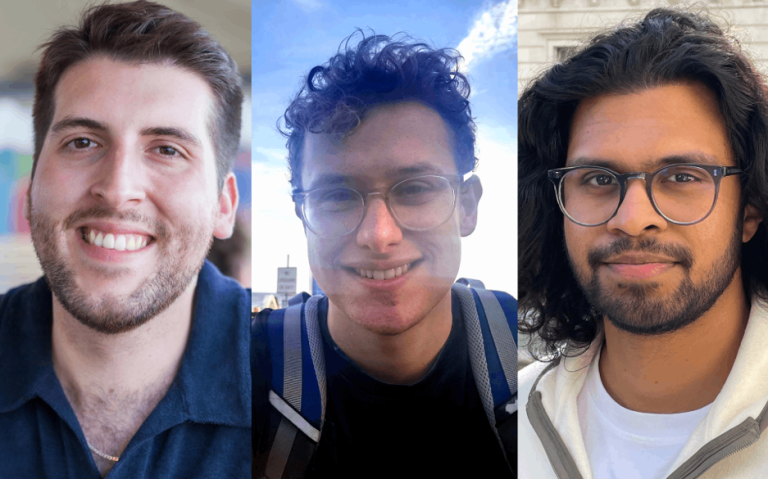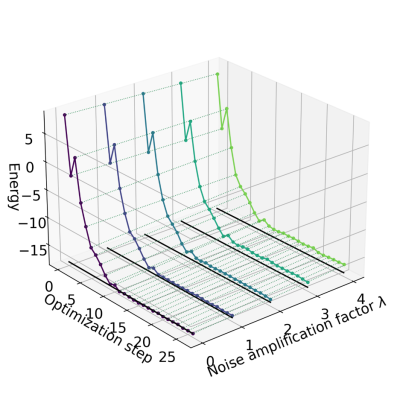UCL students win 2023 IBM Open Quantum Science Prize
18 September 2023
Three UCL students place first out of over 130 applications to share $30, 000.

UCL students Tim Weaving (UCL Chemistry / EPSRC Centre for Doctoral Training in Delivering Quantum Technologies), Dr Alexis Ralli (UCL Chemistry), and Vinul Wimalaweera (UCL Physics and Astronomy) placed first in IBM’s international Quantum Open Science Prize. They will share a prize of $30, 000.
Founded in 2020, the prize brings the quantum community together to tackle useful problems in the field and present open-source solutions. This year’s theme was quantum state preparation—turning a known quantum state into another known quantum state. The submissions were judged based on performance, scalability, and most importantly, creativity.
Participants were asked to prepare the highly frustrated ground state of a Heisenberg spin-1/2 model on a Kagome lattice using the Variational Quantum Eigensolver (VQE) algorithm on the IBM Quantum Falcon device. The challenge organisers selected this problem to advance high-fidelity quantum state preparation. Ground states of systems like the one used for this challenge are at the forefront of quantum computing research due to their unique behaviour.
The UCL team’s submission effectively utilized advanced methods, specifically qubit tapering and contextual subspace VQE with density matrix renormalization group (DMRG). Qubit tapering decreases the number of required qubits for quantum simulations by taking advantage of symmetries in the system being simulated. Contextual subspace VQE uses both classical and quantum VQE computations to more accurately approximate the ground state energy of a Hamiltonian and additionally reduces the amount of qubits required. This combination of methods successfully reduced the problem size from 12 to 5 qubits.

Then, they ran their 5-qubit experiments in parallel to maximize device throughput. Combining these with quantum error mitigation methods like Zero-Noise Extrapolation and Readout Error Mitigation, they achieved a significant improvement in fidelity.
Links:
- Find out more about the IBM Open Quantum Science Prize
- Find out more about the EPSRC Centre for Doctorial training in Delivering Quantum Technologies
Image:
- Top: (left to right) Tim Weaving, Dr Alexis Ralli and Vinul Wimalaweera
- Bottom: The resulting error-mitigated VQE optimisation routine. The energy comes very close to the true ground state energy of -18, with a final error ratio of just 0.08% (well below the 1% threshold required for consideration in the competition).
 Close
Close

